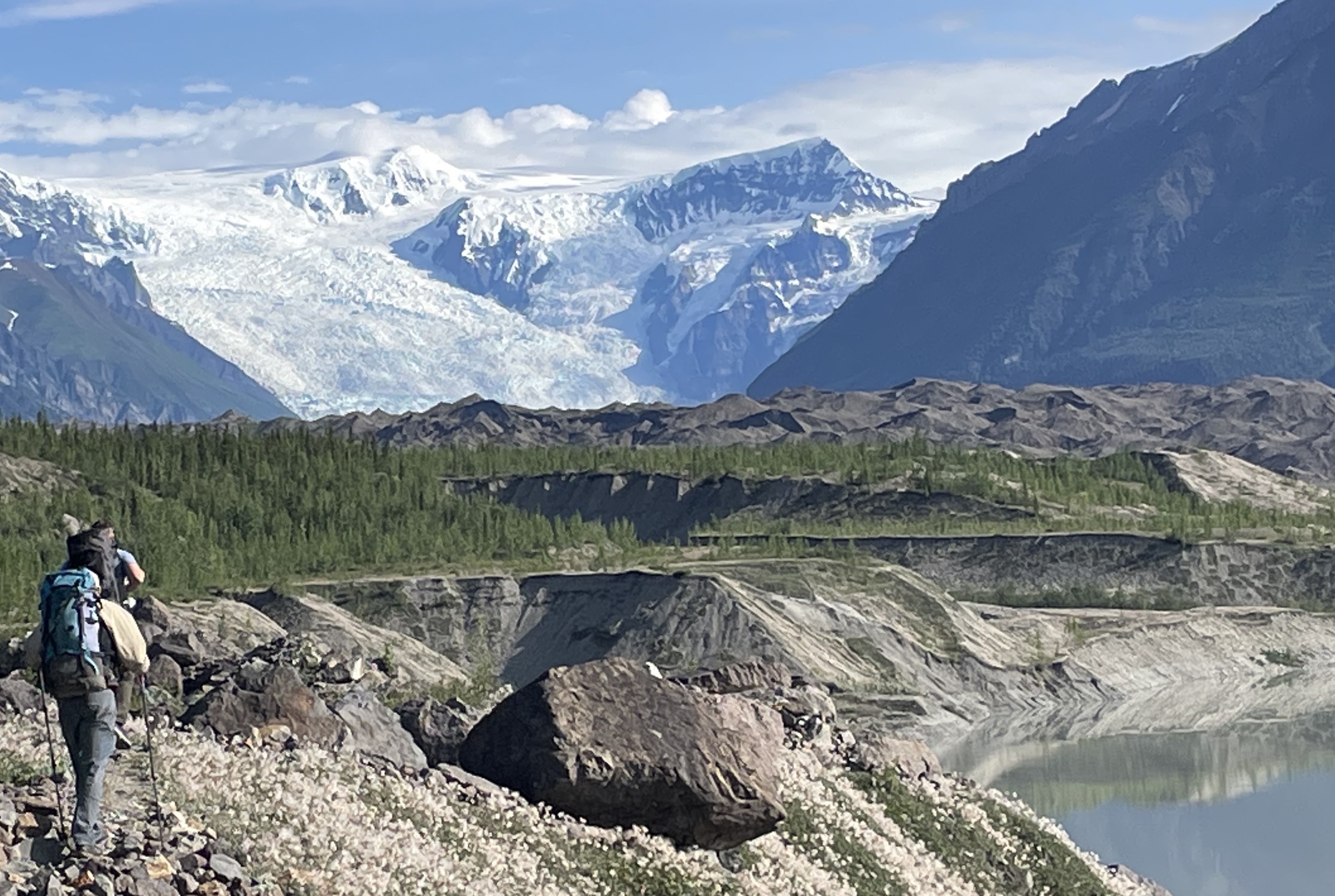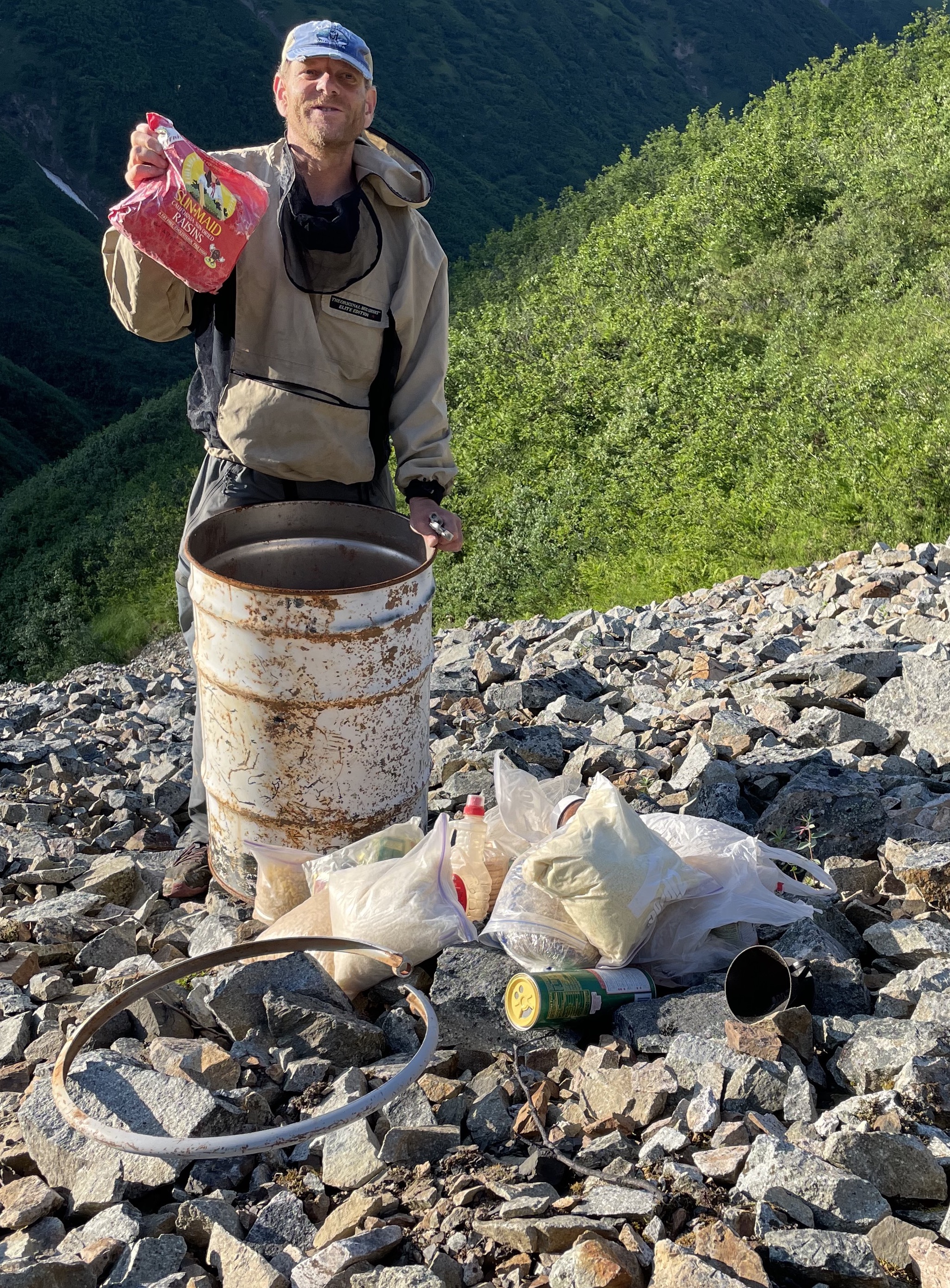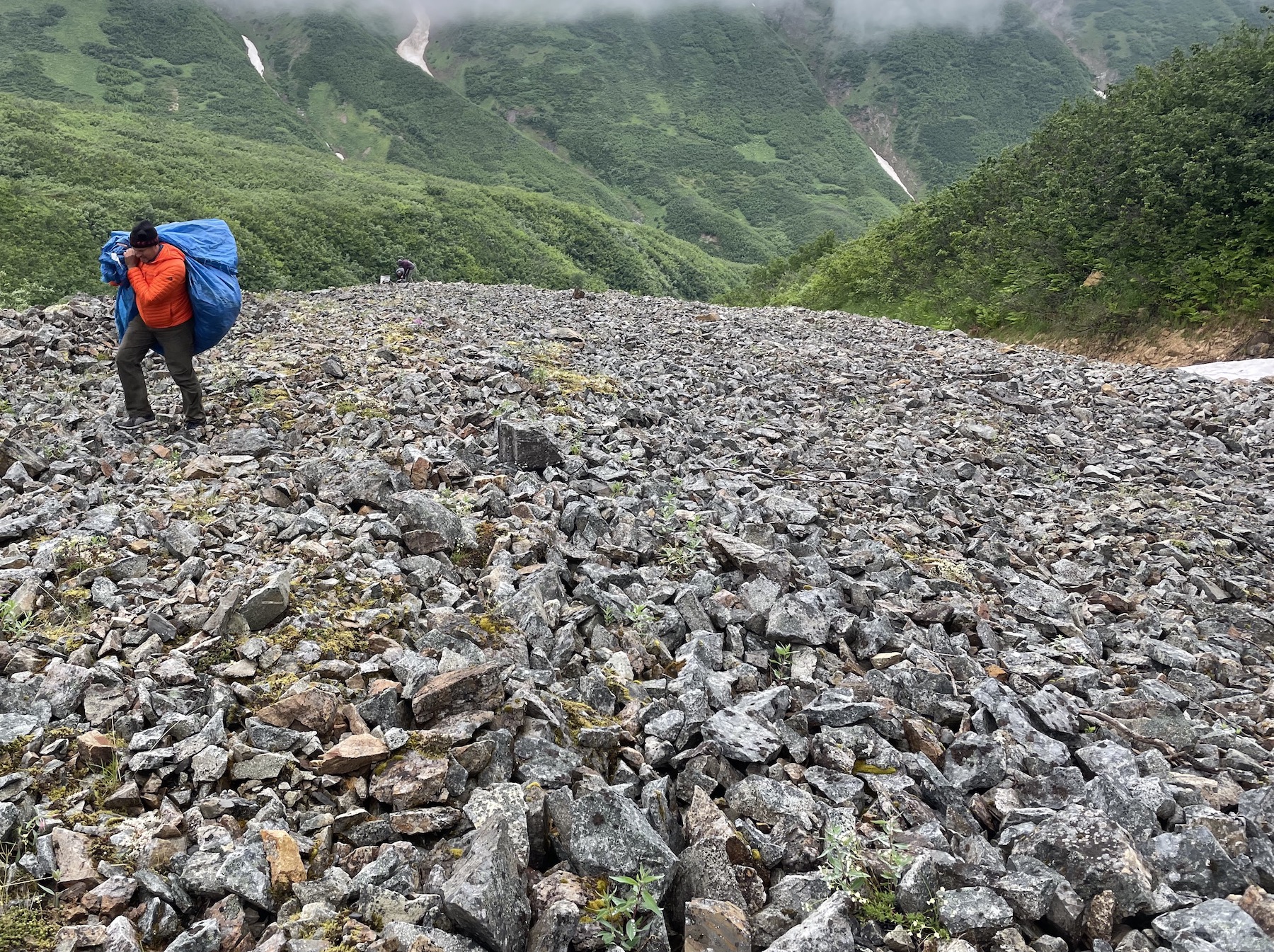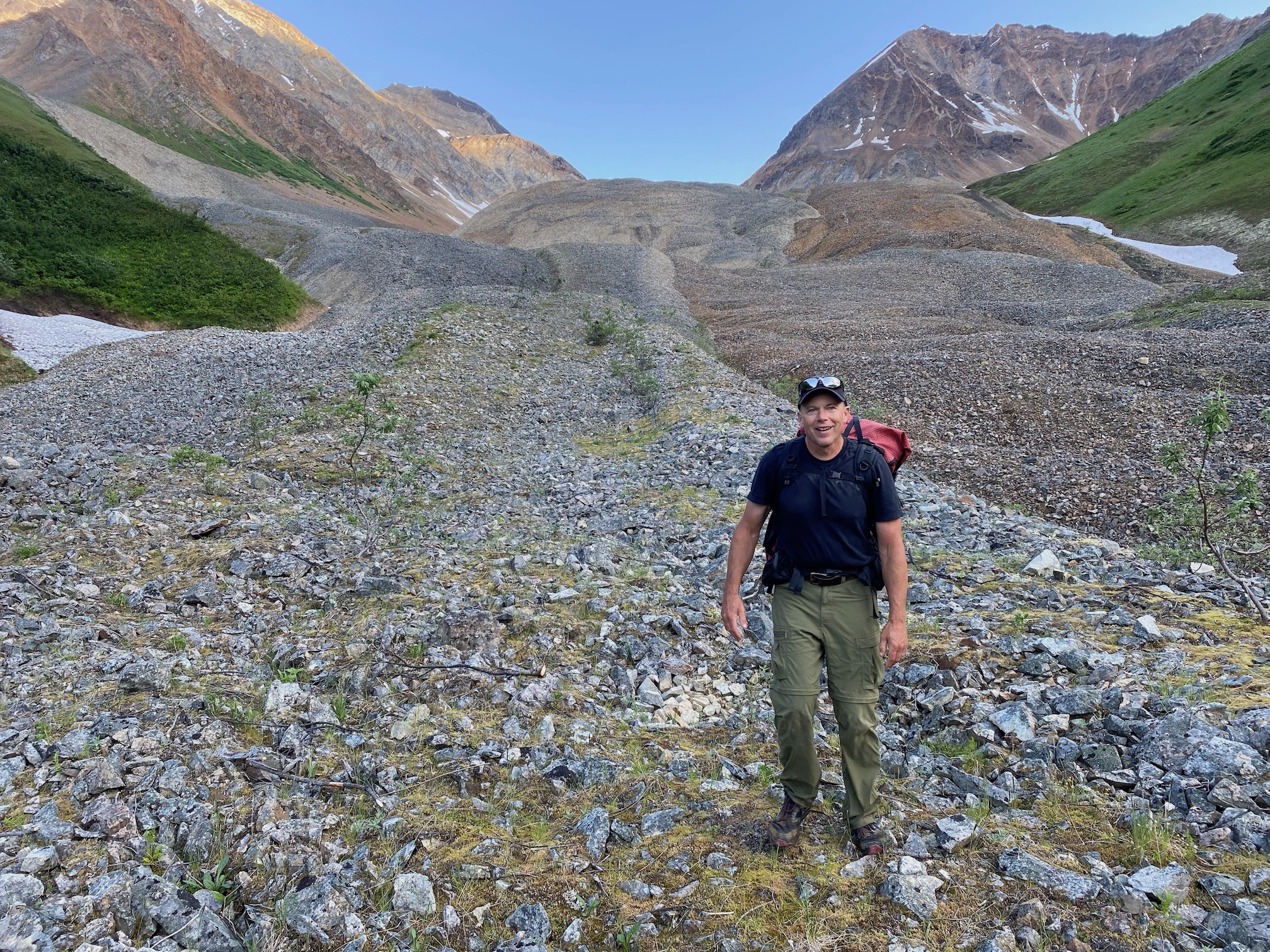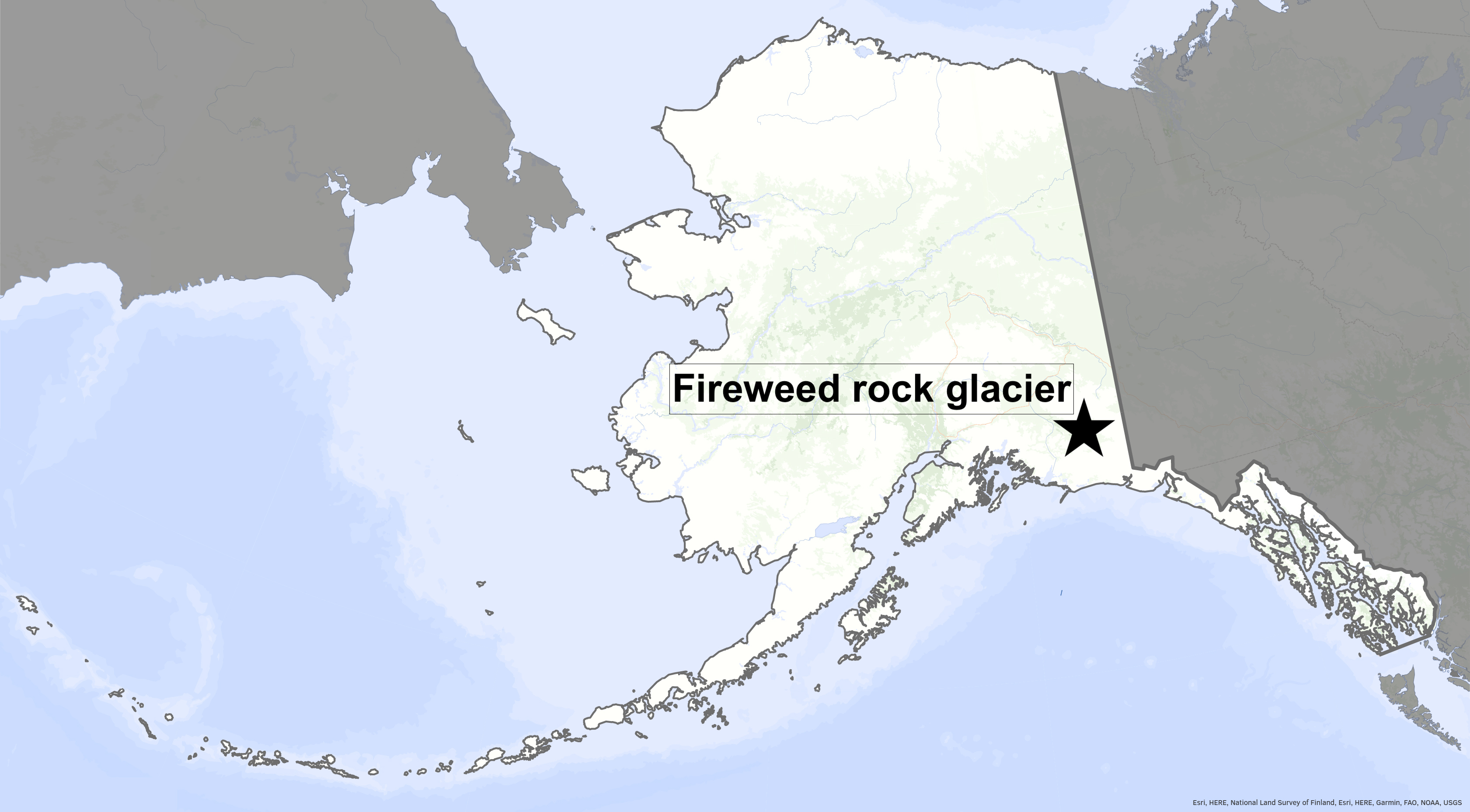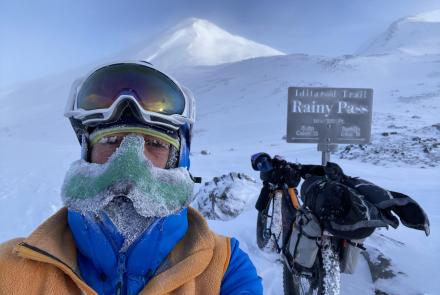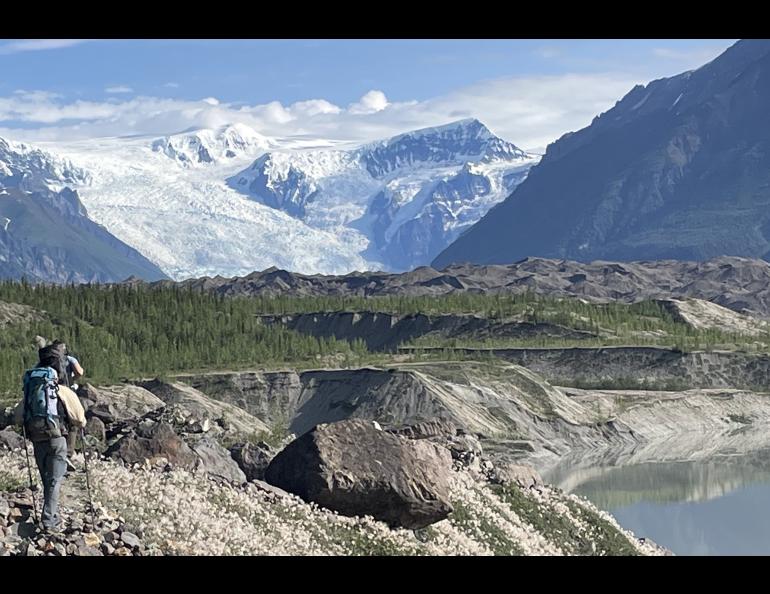
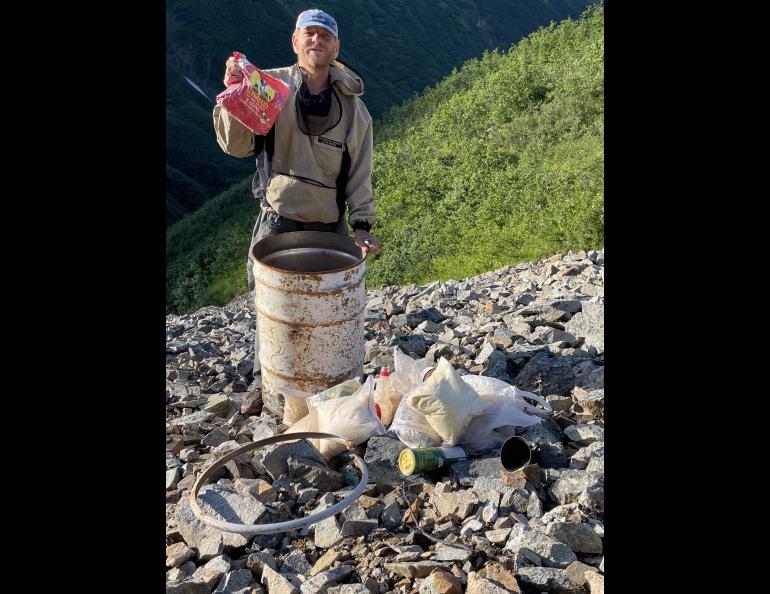
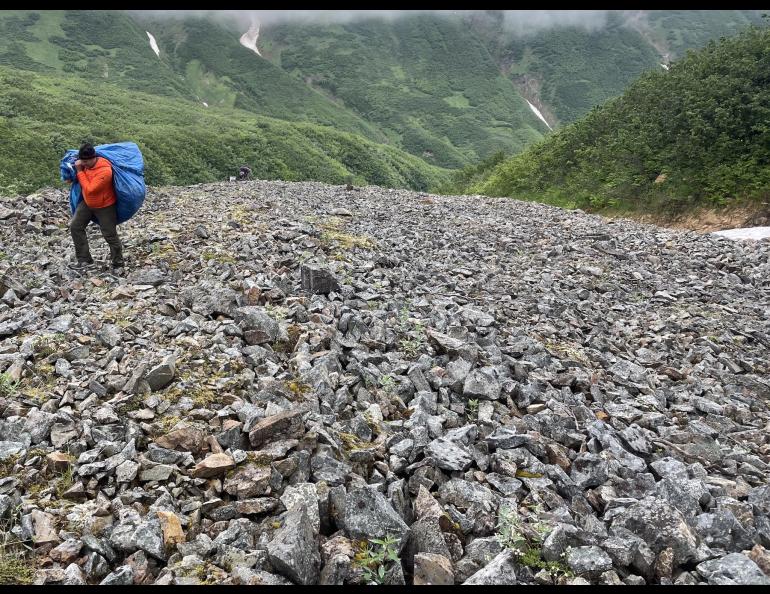
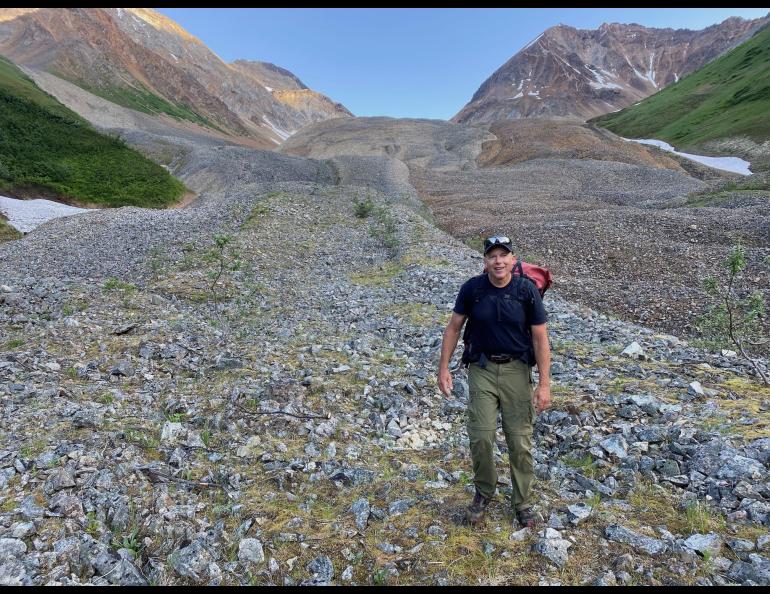
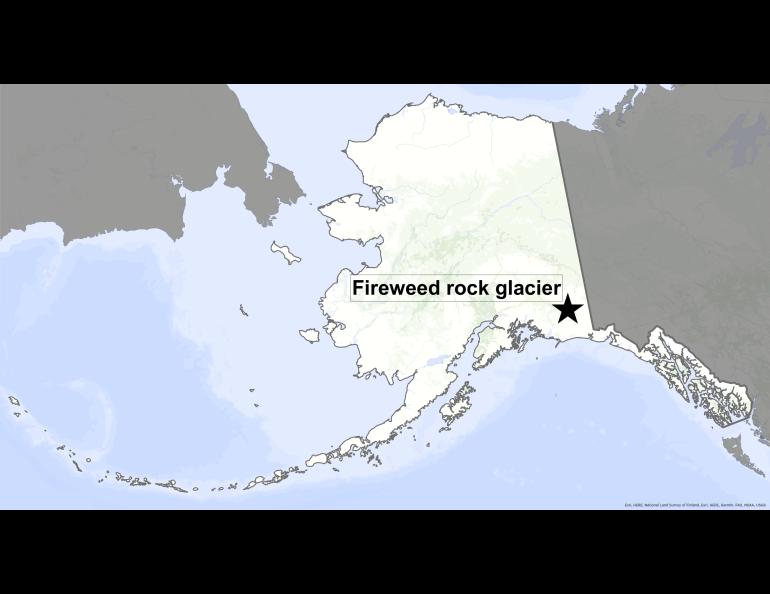
Long-pondered return to a pile of rocks
FIREWEED ROCK GLACIER — “I’ve been thinking of this stuff for the last 20 years,” says Adam Bucki.
My friend, soon to be 50, was in his 20s the last time he stood on this massive pile of pointy rocks that oozes slowly downhill.
Adam has returned to Alaska from his home in suburban Texas to remove a few things that were awaiting his or another scientist’s return. The rock glacier was the subject of his master’s thesis.
A rock glacier is a stream of rocks held together with ice. Rock glaciers flow from mountain bowls in colored bands. They are born of rocks that fall from the walls of a cirque. When the bowl gets filled up, the mass of rock on top of ice starts to creep downhill.
There are many rock glaciers on Mars, and around the town of McCarthy. Fireweed Mountain has a dozen fingering down its slopes.
By the looks of things here, no one has visited Fireweed rock glacier since Adam and independent researcher Roger Elconin walked away more than 20 years ago.
A 35-gallon metal drum leans uphill on the rocks. In Adam’s former kitchen are an aluminum pot with no handle, a spatula and several large tarps. Some are dark blue and amazingly unweathered.
Adam is now in the latter stage of a career with ExxonMobil that has taken him to Norway and Houston, Texas. Before that, he worked in Alaska for the Geophysical Institute at the University of Alaska Fairbanks and the National Park Service at Denali National Park and Preserve.
Also standing here on this pleasant pile of rocks — a 13-mile hike for us from the town of McCarthy — is Martin Truffer, lead researcher in the same Geophysical Institute lab where Adam fledged as a scientist.
Many things have changed in 20 years, including this: The stroll into the heart of Fireweed Mountain massif that took five hours in the ‘90s somehow morphed into an 11-hour hike in July 2023.
I remember in 1999 walking a trail blazed through spruce by Roger. In 2023, we find only snippets of it; we spend a few hours flossing our teeth with dwarf birch, willow and alder. Those new branches and stems were nourished by carbon dioxide that has increased in Earth’s atmosphere from 365 parts per million in the late ‘90s to 420 today — the highest level in the last million years or so.
As we finally stand on the humped back of the rock glacier, we inventory the stuff Adam left on the rocks the last time he had walked away in 2001. Back then, he had thought Roger or some other scientist might return for it.
But Fireweed has probably remained free of human footfalls for the last few decades.
Adam returned in July 2023 to remove what he and Roger had left with the help from a helicopter from Valdez funded by the Geophysical Institute. He asked me and Martin to come along.
Wearing his bug jacket and standing a few yards from Adam, Martin twists open a bolt to inspect the metal barrel that bears had not disturbed for the past 20 years.
“Nutella!” he says, holding up a jar we might have sampled if Adam had not broken the seal when Bill Clinton was president.
We melt snow from a nearby patch to make some tea and activate our dehydrated dinners. As we search for rocks that are adequate for sitting, we observe a true indicator of the Rock-Glacier Comfort Scale: Martin discovers he has been sitting on a fork without noticing it.
* * *
The next morning, just after Adam folds his sleeping pad that a rock punctured and rendered useless, the helicopter arrives from McCarthy. We load two woven-nylon “supersacks” with the empty steel barrel (and its Nutella, pilot bread and dry spaghetti wrapped in a tarp), a length of stovepipe and every other sign of man we can find on Fireweed rock glacier.
Adam watches the second white bag zip off like a giant marshmallow on a slingline down the valley. I feel his silence and my own apprehension, knowing that we will soon be inside that same helicopter, headed for one of those quietly jarring transitions out of the wild.
We also sense the satisfaction that comes with cleaning up a mess that lingered. A debt unpaid, finally squared.

